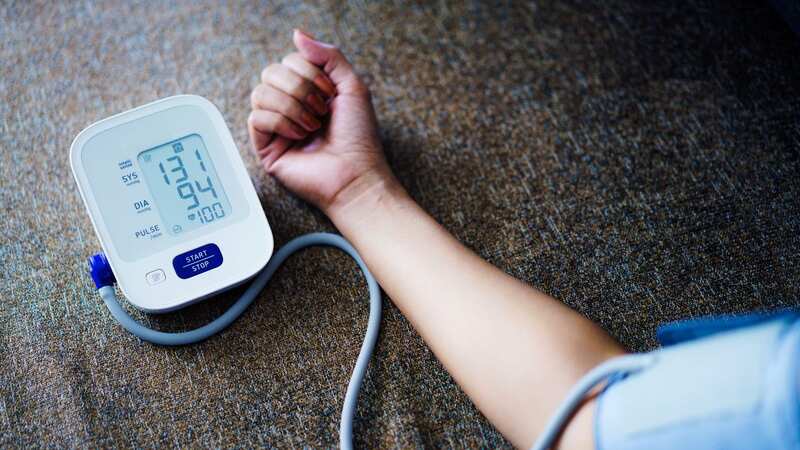Nurse shares six things everyone must know about silent killer with no symptoms

High blood pressure, also known as hypertension, is dubbed as the "silent killer" because of its lack of symptoms. Thousands of people could be living with this ticking time bomb which could kill at any moment.
If it is undetected or untreated, the serious condition can put anyone with it at risk of a heart attack or stroke. Not only that, but it can also lead to heart failure. According to the British Heart Foundation (BHF), more than one in four adults in the UK have high blood pressure but many will not know they have it. In fact, many people with high blood pressure feel fine.
However, the BHF advises you to get your blood pressure checked regularly, even if you feel normal. According to the NHS, if you’re a healthy adult over 40, you should get it checked at least once every five years.
If you’re at a higher risk of developing high blood pressure, you should have it checked more often - ideally once a year. Symptoms of high blood pressure include blurred vision, nosebleeds, shortness of breath, chest pain, dizziness and headaches.
According to Senior Cardiac Nurse Julie Ward, despite the condition being a major cause of serious health problems, many are not aware of the severity of it. Here, she tells the Bristol Post the six things everyone should know about when it comes to this serious condition.
 Teachers, civil servants and train drivers walk out in biggest strike in decade
Teachers, civil servants and train drivers walk out in biggest strike in decade
1. It's a silent killer
"If you have high blood pressure, you may not even know about it - that's why high blood pressure is often called the silent killer," said Nurse Ward.
"There are rarely any signs or symptoms, so millions of people with don’t even know they have it."
2. You might not know about it until you have a heart attack or stroke
"The first time you may find out that you have high blood pressure is when you have a or a ," she said.
High blood pressure can damage the walls of the arteries, causing and stroke. It can also damage the heart muscle, leading to heart failure.
3. Millions of us have it
"More than 14 million adults in the UK have high blood pressure – as many as five million of these are thought to be undiagnosed, as there are rarely any symptoms," said Julie Ward.
There are ways to measure your blood pressure at home, and you can get it measured at your local pharmacy too. If you have any concerns about your health, it's worth booking an appointment with your GP.
4. It’s all about the numbers
"Blood pressure is measured in millimetres of mercury (mmHg). The first (or top) number of your reading is the pressure when your blood pressure is at its highest (when your heart squeezes, called systolic pressure)," she said.
The second (or bottom) number is the pressure when your blood pressure is at its lowest (when your heart relaxes, called diastolic pressure)."
"Unless your doctor tells you otherwise, you should be aiming for a blood pressure less than 140/90 mmHg (usually spoken as “140 over 90”)."
5. Exercise reduces your risk
Not taking regular exercise can increase your risk of high blood pressure. That’s just one of the many reasons why we should all get at least 150 minutes a week of physical activity.
 Greggs, Costa & Pret coffees have 'huge differences in caffeine', says report
Greggs, Costa & Pret coffees have 'huge differences in caffeine', says report
6. Alcohol increases your risk
Too much alcohol can increase your blood pressure. Other lifestyle factors that increase your risk of high blood pressure include being overweight, and not eating enough fruit and vegetables.
For more information, visit the NHS website or contact a health professional for medical advice.
Read more similar news:
Comments:
comments powered by Disqus

































